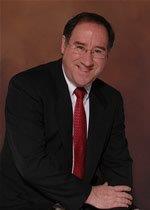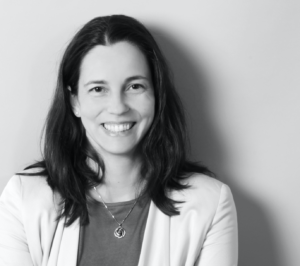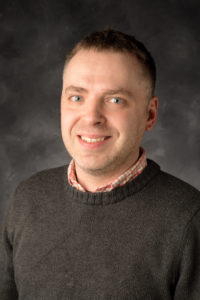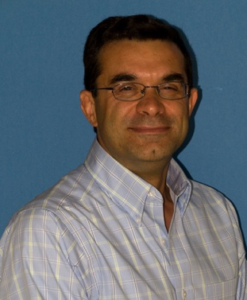GHTC 2021 features these Plenary and Keynote presentations:
- Meet the Editors: Thinking About Publishing for a Transdisciplinary Outlet: What do you need to know? (Tuesday, Oct. 19, 1500 – 1545 (PT), 1800 – 1845 (ET), 2200 – 2245 (GMT))
- Widening Access to Applied Machine Learning with TinyML (Wednesday, Oct. 20, 900 – 940 (PT), 1200 – 1240 (ET), 1600 – 1640 (GMT))
- Internet Coverage is Not Binary (Wednesday, Oct. 20, 945 – 1030 (PT), 1245 – 1330 (ET), 1640 – 1730 (GMT))
- Lessons Learned from MOVE (Wednesday, Oct. 20 1400 – 1430 (PT), 1700 – 1730 (ET), 2100 – 2130 (GMT))
- Public Interest Tech: Educating Impact-focused Scholars and Practitioners (Thursday, Oct. 21, 900 – 940 (PT), 1200 – 1240 (ET), 1600 – 1640 (GMT))
- Making Sense of Sensing Applications for Agricultural Applications (Thursday, Oct. 21, 945 – 1030 (PT), 1245 – 1330 (ET), 1640 – 1730 (GMT))
- Hearing Aids and Internet-of-Things Ecosystem (Friday, Oct. 22, 900 – 940 (PT), 1200 – 1240 (ET), 1600 – 1640 (GMT))
- Innovations and challenges in developing Medical Devices (Friday, Oct. 22, 945 – 1030 (PT), 1245 – 1330 (ET), 1640 – 1730 (GMT))
- Federal Policies, Programs and Funding Opportunities on Humanitarian Engineering (Friday, Oct. 22 1410 – 1500 (PT), 1710 – 1800 (ET), 2110 – 2200 (GMT))
Download Plenary speakers booklet (PDF)
Meet the Editors: Thinking About Publishing for a Transdisciplinary Outlet: What do you need to know?Tuesday, October 19, 2021 | 3:00 PM — 3:45 PM (PT)Katina Michael, founding Editor in Chief and Roba Abbas, co-editor, the IEEE Transactions on Technology and SocietyKatina Michael is the founding Editor in Chief of the IEEE Transactions on Technology and Society. Katina works closely with five co-editors Roba Abbas, Rafael Calvo, George Roussos, Eusebio Scornavacca and Samuel Fosso Wamba to service the IEEE and broader community of academicians and practitioners on topics that explore all things technology and society. Come along and learn more about the scope of the journal, what’s expected from submissions in content and format, and how to get the most out of the review process. The first 15 minutes will be dedicated to a broad introduction, and then 30 minutes to Q&A from participants.Journal Scope: The IEEE Transactions on Technology and Society publishes research papers on the interactions among technology, science, and society; on the impact of such interactions on individuals and society; and on the ethical, professional and social responsibility in the practice of science, technology, engineering and mathematics. Within this scope, the Transactions covers a broad range of topics in such areas as energy, information and communication, health and safety, life sciences, economic issues, engineering education, environmental implications, and social effects of emerging technologies and innovations. It also addresses issues surrounding professional practice and responsibility, regulation and public policy, technology and the future of work, philosophy of technology, engineering and biotechnical ethics, and sustainability. The Transactions communicates to a wide array of readers from multiple disciplines involved in the societal impact of technology. It is multidisciplinary with joint perspectives from individuals such as engineers, scientists, technologists, ethicists, public policy experts, lawyers, health practitioners, economists, and sociologists. Emphasis is on high quality research and empirical studies, applications and technological issues, and theoretical arguments supported by evidence or proof. |
||
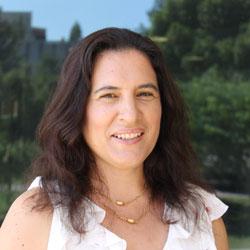 |
Katina Michael BIT, MTransPriv, PhD is a professor at Arizona State University, a Senior Global Futures Scientist in the Global Futures Laboratory and has a joint appointment in the School for the Future of Innovation in Society and School of Computing and Augmented Intelligence. She is the director of the Society Policy Engineering Collective (SPEC) and the Founding Editor-in-Chief of the IEEE Transactions on Technology and Society. Katina is a senior member of the IEEE and a Public Interest Technology advocate who studies the social implications of technology. In 2020 she received the ICTO Golden Medal for lifetime achievement award for exceptional contributions to research in information systems, and the IEEE Phoenix section’s Outstanding Member Contributing to Global Humanitarian Projects Award for her contributions to a better understanding of the impact of emerging technologies on humanity. In 2017, she also received the Brian M. O’Connell Society on the Social Implications of Technology (SSIT) Distinguished Service Award. www.katinamichael.com |
|
 |
Roba Abbas is a Lecturer and Academic Program Director with the Faculty of Business and Law at the University of Wollongong, Australia. She has a PhD in location-based services regulation and has received competitive grants for research addressing global challenges in areas related to co-design and socio-technical systems, operations management, robotics, social media and other emerging technologies. Her current research interests include methodological approaches to complex socio-technical systems design. More recently, she has delivered talks and co-organized panels for Yale University, The Alan Turing Institute, the American Association of Geographers, the American Association for the Advancement of Science (AAAS), Arizona State University and Ostfalia University of Applied Sciences. Roba is Co-Editor of the IEEE Transactions on Technology and Society and was the Technical Program Chair for the IEEE International Symposium on Technology and Society (ISTAS20) hosted by Arizona State University in November 2020. From 2005 to 2010, she was a Product Manager with Internetrix, Wollongong. https://scholars.uow.edu.au/display/roba_abbas |
|
|
|
||
Widening Access to Applied Machine Learning with TinyMLWednesday, October 20, 2021 | 9:00 AM — 9:40 AM (PT)Tiny machine learning (TinyML) is a fast-growing field at the intersection of ML algorithms and low-cost embedded systems. TinyML enables on-device analysis of sensor data (vision, audio, IMU, etc.) at ultra-low-power consumption (<1mW). Processing data close to the sensor allows for an expansive new variety of always-on ML use-cases that preserve bandwidth, latency, and energy while improving responsiveness and maintaining privacy. This talk introduces the vision behind TinyML and showcases some of the novel humanitarian applications that TinyML is enabling in the field, from wildlife conservation to supporting public health initiatives. Yet, there are still numerous challenges to address. Tight memory and storage constraints, hardware/software heterogeneity, and a lack of relevant large-scale datasets still pose a substantial barrier to developing TinyML applications. To this end, the talk also touches upon some of the key challenges and opportunities for unlocking the full potential of TinyML for social good. |
||
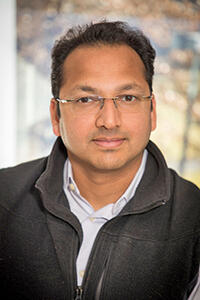 |
Vijay Janapa Reddi is an Associate Professor at Harvard University, VP and a founding member of MLCommons (mlcommons.org), a nonprofit organization aiming to accelerate machine learning innovation for everyone. He also serves on the MLCommons board of directors and is a Co-Chair of the MLCommons Research organization. Before joining Harvard, he was an Associate Professor at The University of Texas at Austin in the Department of Electrical and Computer Engineering. His research sits at the intersection of machine learning, computer architecture and runtime software. He specializes in building computing systems for tiny IoT devices, as well as mobile and edge computing. Dr. Janapa-Reddi is a recipient of multiple honors and awards, including the National Academy of Engineering (NAE) Gilbreth Lecturer Honor (2016), IEEE TCCA Young Computer Architect Award (2016), Intel Early Career Award (2013), Google Faculty Research Awards (2012, 2013, 2015, 2017, 2020), Best Papers at the 2020 Design Automation Conference (DAC), 2005 International Symposium on Microarchitecture (MICRO), 2009 International Symposium on High-Performance Computer Architecture (HPCA), IEEE’s Top Picks in Computer Architecture awards (2006, 2010, 2011, 2016, 2017,2021). |
|
|
|
||
Internet Coverage is Not BinaryWednesday, October 20, 2021 | 9:45 AM — 10:30 AM (PT)Access to information and communications technologies plays a pivotal role in the socio-economic development of any community. Currently, there are more than 4 billion people with Internet access, representing about half of the world population. Connectivity efforts typically focus on the remaining half of the population. At the same time, discrepancies in access for the 4 billion who do use the Internet are daunting. In this talk, we will examine digital inequality amongst those who do have Internet access, dissecting the Internet experience within the US and abroad in detail.
|
||
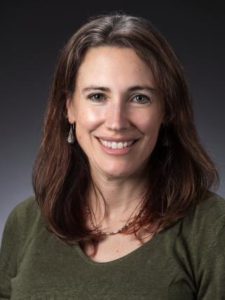 |
Elizabeth M. Belding is a Professor in the Department of Computer Science at the University of California, Santa Barbara. Prof. Belding’s research focuses on mobile and wireless networking, including network performance analysis, and information and communication technologies for development (ICTD). Prof. Belding applies her wireless network expertise to a wide range of contexts, and is particularly interested in improving Internet and cellular accessibility in developing and resource-challenged communities worldwide. Her ICTD projects have included work in Zambia, South Africa, Mongolia, and refugee camps. Most recently, she has been working with Native American communities around the US. She is the founder and director of the Mobility Management and Networking (MOMENT) Laboratory. Prof. Belding is the author of over 150 technical papers on wireless networking and has served on over 80 conference technical program committees. She was Vice Chair of the UCSB Computer Science department 2009-15 and 2017-19. She is currently an Associate Dean and Faculty Equity Advisor in the UCSB College of Engineering. Prof. Belding is the recipient of an NSF CAREER Award, and a 2002 MIT Technology Review 100 award, awarded to the world’s top young investigators. She is an ACM Fellow, AAAS Fellow and IEEE Fellow. She is particularly proud of receiving the UCSB Outstanding Graduate Mentor Award in 2012 and the NCWIT Harrold and Notkin Research and Graduate Mentoring Award in 2015 for her mentorship of graduate students. | |
|
|
||
IEEE MOVE Disaster Relief ProgramWednesday, October 20, 2021 | 2:00 PM — 2:30 PM (PT)As climate change continues to have an impact throughout the world, the IEEE MOVE program continues to respond to supply power and communications at disaster events. The IEEE-USA MOVE program celebrates its 5th anniversary. MOVE continues to grow with great support from the members and the donation of a second satellite response vehicle. IEEE MOVE has also started an expansion into the international space with programs in India and the Caribbean. This talk will discuss why the program continues to grow worldwide. |
||
|
|
||
Public Interest Tech: Educating Impact-focused Scholars and PractitionersThursday, October 21, 2021 | 9:00 AM — 9:40 AM (PT)The profound societal and economic impacts of digital technology have engendered a growing interest in innovations that intentionally serve societal good. Public Interest Tech is an emerging scholarly and professional field that is defined by the deployment of technological expertise in service of public needs–from consumer rights, criminal justice, and trustworthy information ecosystems, to education, public health, and the environment. In this presentation we will describe our efforts to educate the next generation of impact-focused scholars and practitioners through novel Public Interest Tech (PiTech) interventions: PiTech Studio, Impact Fellowships, and Visiting Practitioners programming. A strong diversity of perspectives and experiences is critically important to building effective PiTech, and we work to reflect this priority across our programs. |
||
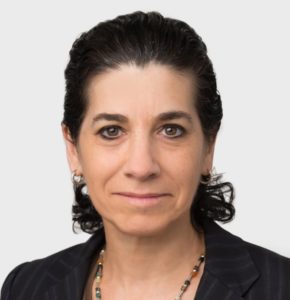 |
Deborah Estrin is a Professor of Computer Science at Cornell Tech where she holds The Robert V. Tishman Founder’s Chair, serves as the Associate Dean for Impact, and is an Affiliate Faculty at Weill Cornell Medicine. Estrin’s research activities include technologies for caregiving, immersive health, small data, participatory sensing, and Public Interest Technology.
Before joining Cornell University Estrin was the Founding Director of the NSF Center for Embedded Networked Sensing (CENS) at UCLA; pioneering the development of mobile and wireless systems to collect and analyze real-time data about the physical world. Estrin co-founded the non-profit startup, Open mHealth, and has served on several scientific advisory boards for early-stage mobile health startups. She is currently an Amazon Scholar (2019-present). Estrin is an elected member of the National Academy of Engineering, National Academy of Medicine, and was chosen as a 2018 fellow of the MacArthur Foundation. |
|
|
|
||
Making Sense of Sensing Applications for Agricultural ApplicationsThursday, October 21, 2021 | 9:45 AM — 10:30 AM (PT)This talk will first introduce MoleNet, which is a self-developed and maintained hardware platform for underground and other challenged environments, developed mostly for agricultural applications. We will explore together our experience with the system itself and with its deployments. The focus of the talk is however on what to do from this data: how to make the next step from sensing to making sense of the data. What are the users’ expectations? What are the challenges? What is needed to make such applications truly useful and help us reach the Sustainable Development Goals. |
||
|
|
||
Hearing Aids and Internet-of-Things EcosystemFriday, October 22, 2021 | 9:00 AM — 9:40 AM (PT) |
||
Over the last decade, researchers have successfully improved the performance of hearing aids by leveraging the increasing capabilities of hardware platforms, which enabled sophisticated signal processing algorithms. In contrast, I expect that further improvements will not be driven primarily by better hardware but rather by the integration of hearing aids into the Internet of Things (IoT) ecosystem. The IoT ecosystem is composed of resource-constrained devices such as phones, smart glasses, or Internet-enabled doorbells. As an example of this trend, I present two benefits of integrating smartphones and hearing aids. First, I will discuss how smartphones helped improve our understanding of the performance of hearing aids in the real world. Next, I will explain how smartphones can help better personalize hearing aids to meet a user’s individual hearing needs. Finally, I will conclude with a vision of hearing aids in which they are tightly integrated into the IoT ecosystem. |
||
|
|
||
Innovations and challenges in developing Medical DevicesFriday, October 22, 2021 | 9:45 AM — 10:30 AM (PT)In this brief talk we explore the building blocks and applications of the Internet of Medical Things (IoMT). We talk about technical challenges of developing IoMT and its tremendous value for patient care. We also briefly examine the logistical hurdle in developing novel medical devices, including navigating FDA regulations. |
||
Federal Policies, Programs and Funding Opportunities on Humanitarian EngineeringFriday, October 22, 2021 | 2:10 PM — 3:00 PM (PT)The federal government organizes many programs, through the Department of State, USAID and other research agencies, that support humanitarian engineering projects. This talk will provide an overview of these programs and funding opportunities and will offer a brief overview of how IEEE-USA is working with these agencies to ensure that the United States can address humanitarian needs in a manner that is sustainable and technology-based. From ensuring the sustainability of our oceans to collaborating with developing nations on remote sensing and environmental monitoring, IEEE-USA members have been at the forefront of developing technological solutions to global challenges. Ensuring refugees access to electric grids and that they have access to clean water are just some of the many issues that IEEE engineers address through humanitarian programs. Lastly, this talk will provide a summary of how IEEE-USA can be helpful in working with the federal government, Congress and the administration to ensure robust support for the federal programs that support technical work in humanitarian fields. |
||
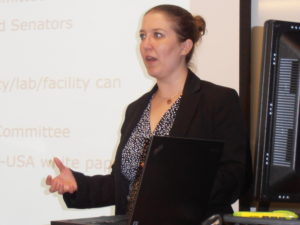 |
Aline McNaull works on energy, space, defense and research policy on behalf of IEEE-USA members and is the staff lead for IEEE-USA’s research and development policy committee, the committee on aerospace and transportation, as well as the energy policy committee. She collaborates closely with the Coalition for National Security Research, Energy Sciences Coalition, Coalition for National Science Funding and the Task Force on American Innovation. As an advocate for IEEE-USA members, she has influenced legislation on issues and programs at DOD, DOE, NASA, NIST, and NSF. Previously, she was a semiconductor engineer at Raytheon and a patent examiner for the U.S. Patent and Trademark Office. She holds a BA in physics from Bryn Mawr College. | |
|
|
||
|
|
||





